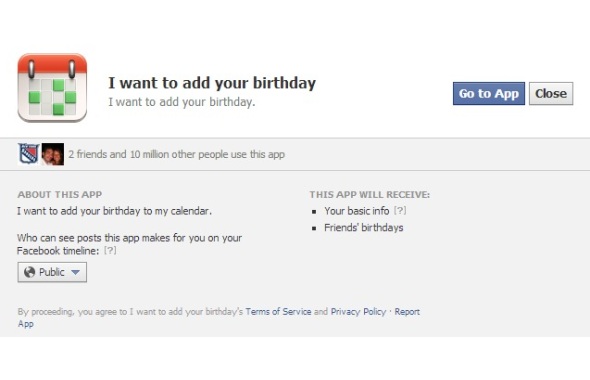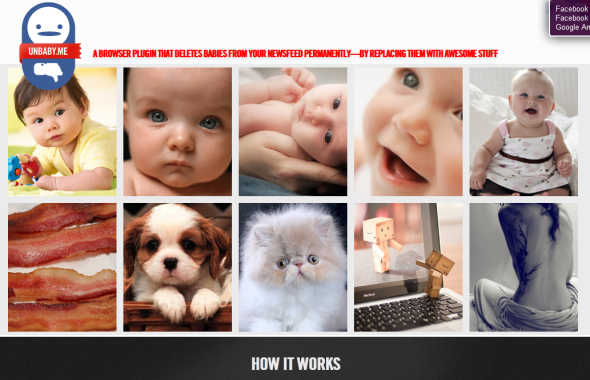Top 10 Unfriendable Mistakes
Many view their social media pages as a place where they can voice their opinions and show off pieces of their lives. However, there’s a fine line between being you and being annoying, especially on Facebook and Twitter, where it’s harder for someone to tell your tone. Plus, those who allow bosses, co-workers or family to see their social media pages should be extra careful. The slightest misdemeanor in social media etiquette could cause some to think poorly of you, or worse, defriend you. We talked to owner of The Protocol School of Texas Diane Gottsman, Daniel Post Senning of the Emily Post Institute, social media expert Mari Smith and The Protocol School of Palm Beach etiquette associate Jorie Scholnik to get the lowdown. Avoid these online behaviors to ensure that the number of your friends and followers doesn’t plummet.

Oversharing
Whether you’re simply posting a new status every hour or posting personal content that some may not want to hear (such as “Clipped my toenails and found a new wart” or “Dang, I look good today”), oversharing is a huge no-no. Modern etiquette expert and owner of The Protocol School of Texas Diane Gottsman said, “Appearing self-impressed and self-absorbed is very easy when all you talk about is you, you and more of you.” Not only does oversharing make people think you’re narcissistic, unless they’re a very close friend or family member, most of your friends and followers may feel uncomfortable knowing intimate details about your life, such as a medical issue you’ve been dealing with or a play-by-play of what you did last night.

Being a Negative Nelly
Everyone has a bad day once in awhile, but hearing about it every day via social media is enough to click Unfriend. Smith warned against posting persistent negative, complaining posts, while Post said the volume of the “Negative Nelly” can be a major reason for online friends to back away from your relationship. It’s OK to discuss your bad day with friends in person or via the phone, but if you consistently do it via social media, friends are going to stop feeling bad for you and start getting plain annoyed. Think of it this way: Would you want to be friends with someone who’s constantly depressed and complaining?

Posting political or religious stances
It’s natural to want to champion your political and religious opinions. We have an innate need to find others with similar views, or perhaps convert others to our way of thinking. But there’s a reason you don’t talk politics or religion at a dinner party. Both are touchy subjects that people tend to get fired up about. Daniel Post Senning of the Emily Post Institute and author of “Manners in a Digital World,” advises people to steer away from what he calls “not table talk.” You could appear “preachy if you don’t approach those topics with care,” he said. Gottsman agreed: “Religion and politics should be kept private. Even those that agree with you are bored and irritated when all you do is use your social network as a forum to hear yourself talk.”

Oversuggesting
So, you discovered a fun new game on Facebook. That’s great, but that doesn’t mean you have to suggest that your entire list of friends plays it as well. The same goes for suggesting Pages or events. Social media expert Mari Smith recommended not to regularly invite all your friends to events that have zero relevance to them. Think about it this way: If your friends consistently take the time to check their notifications only to discover that it’s another irrelevant Page suggestion from you, they may click Unfriend to eliminate the clutter.

Posting sexist or racist updates
Face it: These posts make you look ignorant. Smith recommended avoiding posting anything highly opinionated or polarizing. Even if you’re making a joke, your tone and intentions don’t translate as easily through the Web. Jorie Scholnik, an etiquette associate at The Protocol School of Palm Beach, said, “It’s important to remember that people don’t always share the same sense of humor. Also, because there’s no face-to-face interaction, it’s hard for others to discern the intent.” Even linking to an outside site that contains sexist or racist content could get you in trouble, even if you’re noting how despicable the content is.

Too many personal photos
We get it. You love your cat. And you’re super excited about being a Dad. But there’s no need to post hourly photos of felines or babies. Post recommends you show discretion with photos, and that includes sharing too many that give insight to your personal life. Scholnik suggested asking yourself, “Is this too much information?” before posting. “Post only what you want to know about others,” she said. So yes, the occasional photos of your new car is appreciated by one and all, but an excessive amount of photos of what you ate that day is unnecessary. There's even a humorous plugin, Unbaby.me, that turns photos of babies into photos of cool stuff like bacon and puppies. Don't make your friends resort to using that plugin. Be conscious of how many personal photos you share.
Stay in the know with Laptop Mag
Get our in-depth reviews, helpful tips, great deals, and the biggest news stories delivered to your inbox.

Using foul language
Think about who your Facebook friends and Twitter followers are. You probably have at least a few family members, co-workers and professional contacts with whom you’d like to continue a professional relationship. Dropping a curse word casually on your social pages wipes all notions of professionalism from your reputation. Gottman puts it simply: “You should never post anything you wouldn’t want your boss or your children to see.” You don’t want to disappoint Grandma when she logs on and sees that you have a mouth like a sailor, do you?

Online feuding
People fight. It’s a fact of life. But those fights don’t need to make it into the online social sphere. That’s just a way for outsiders to get involved or potentially feel uncomfortable. Gottsman is frank: “Disagreements should be handled person to person.” Even a passive-aggressive comment can escalate into a fight, so avoid those as well. For example, Scholnik said, a comment like, “I’m glad I found out who my true friends were last night” should never be handled online, but rather by picking up the phone and having a private conversation. Plus, when the dispute is settled, you don’t want evidence of it lingering. Post advised to remember that everything on social media is public and permanent. “Don’t be seduced by the illusion of privacy,” he said.

Asking for handouts
Falling on hard times has lead to a recent and disturbing social trend of asking for help, whether it be physically, emotionally or financially. Avoid this. Post referred to the personal tier of conversation, regarding family or finances, and noted to never discuss these subjects via social media. If you’re going through a financially hard time, brief your close friends and family on it in person. That way, if they can help, they can let you know offline. There’s no reason to make your social media friends feel awkward if they can’t help at the time, or if they’re frankly not close enough to you to want to know about your financial woes.

Stalking
Just because you’re friends with someone via social media doesn’t mean you should comment on their every online move. Commenting on photos or statuses every once in awhile is nice to show someone you’re interested in their life, but writing something about everything can just get creepy. Smith said that liking or commenting on a friend’s every post and activity comes off as stalker-ish, and Post advised against relentlessly following the same person. This advice goes double for parents interacting with their children online. You may come off as the overeager mom who wants to be involved in her kid’s life, but who just ends up embarrassing them.
